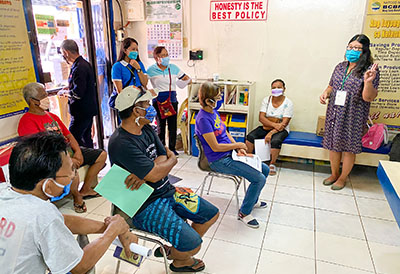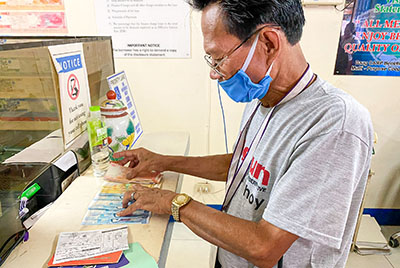The Department of Agriculture through the Agricultural Credit Policy Council (DA-ACPC) distributes a total of P7.4 million cash assistance to 296 farmers and fisherfolk in Caraga whose incomes were affected by the enhanced community quarantine (ECQ) due to COVID-19 pandemic.
The 296 farmers and fisherfolk beneficiaries are from the municipalities of Las Nieves, Nasipit, Buenavista and Cabadbaran City, Agusan del Norte and Bayugan City, Agusan del Sur. The financial assistance is released by Baug Carp Beneficiaries Multipurpose Cooperative and the Bayugan Achievers Multipurpose Cooperative as partner conduits.
“The amount should be used to support the farming activities of our farmers despite the effects brought by the COVID-19,” said OIC-Assistant Regional Director for Operations Rebecca Atega.
Atega shared that the government is working on making sure that food production is sustained by the food producers despite the challenges and restrictions of the pandemic.
This loanable fund is under DA’s Ahon Lahat Pagkaing Sapat (ALPAS) Kontra sa COVID-19 or the Expanded SURE Aid and Recovery Project (SURE COVID-19). The emergency and recovery credit assistance program would respond to the needs of the marginalized small farmers and fisherfolk (MSFF).
Under the SURE COVID-19 loan program, eligible farmers and fisherfolk may borrow up to P25,000 per farming household, with no collateral, zero interest, and payable in 10 years.
“The amount we received is a big help to us. I am grateful that through this, we can just continue to finance our farming activities,” said Lucia Salo, a farmer from Brgy. La Union, Cabadbaran City.
DA-ACPC continues to partner with conduit lending institutions which include rural banks, cooperative banks, cooperatives, and viable non-government organizations (NGO) and associations that provide accessible and affordable credit to the borrowers in the countryside. (Fretcher Magatao, DA-Caraga)








